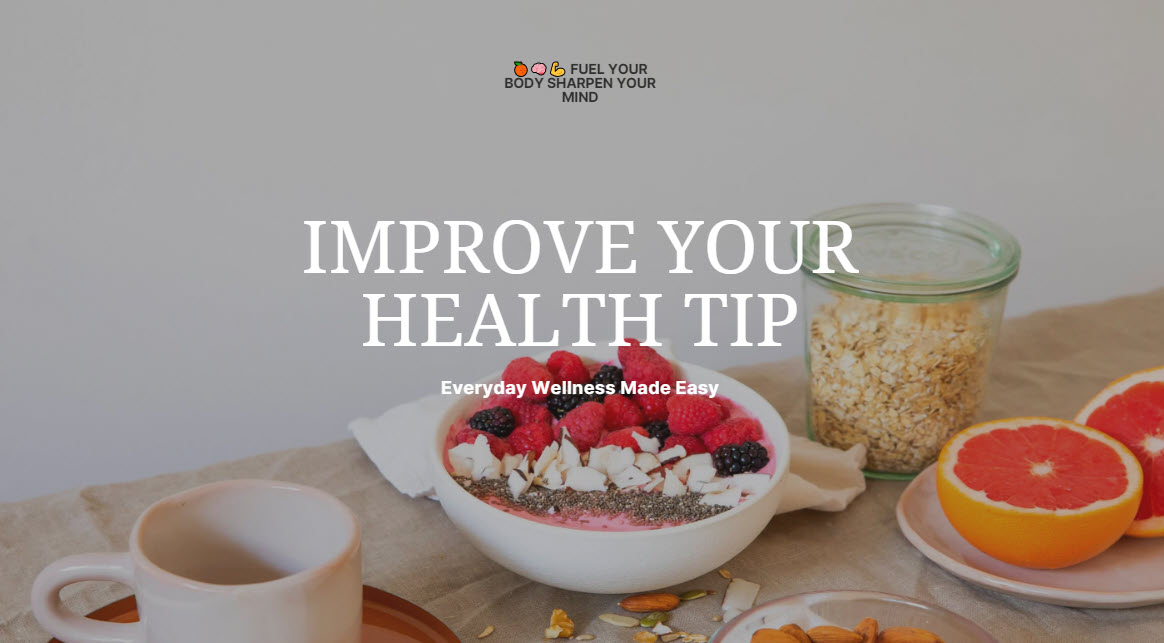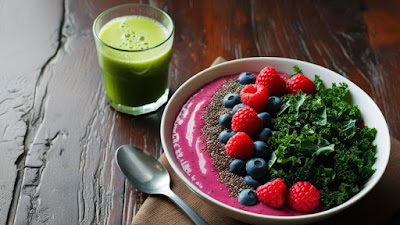The Role of Mental Health in Physical Well-being—Mental and physical health are deeply connected. While many people focus on their physical health by eating well and exercising, mental health is equally important in maintaining overall well-being. Stress, anxiety, and depression can significantly affect the body, leading to various health complications. Understanding the mental and physical health relationship can help individuals develop a more holistic approach to their well-being.
The Connection Between Mental and Physical Health
Stress triggers the release of cortisol, the body's primary stress hormone. While cortisol is essential for survival, chronic stress can lead to:
Increased blood pressure
Weakened immune system
Sleep disturbances
Weight gain
Digestive issues
Managing stress through relaxation techniques, mindfulness, and self-care can help mitigate its impact on physical health.
2. Mental Health and Heart Health
Studies show that individuals with chronic anxiety or depression have a higher risk of developing heart disease. Poor mental health can lead to unhealthy habits such as smoking, overeating, and a sedentary lifestyle, all of which contribute to cardiovascular problems.
The gut and brain communicate through the gut-brain axis. When mental health declines, it can disrupt digestion, leading to issues such as irritable bowel syndrome (IBS), bloating, and discomfort. Conversely, maintaining a healthy diet with probiotic-rich foods can improve mood and cognitive function.
Chronic stress and depression weaken the immune system, making the body more susceptible to infections and diseases. Mental well-being supports a strong immune response, helping the body fight illnesses effectively.
5. Sleep and Recovery
Mental health disorders like anxiety and depression often lead to sleep disturbances. Poor sleep quality can increase the risk of obesity, heart disease, and cognitive decline. Practicing good sleep hygiene, such as limiting screen time before bed and maintaining a regular sleep schedule, is essential for overall health.
6. Chronic Pain and Mental Health
Mental health conditions can exacerbate physical pain. Depression and anxiety can heighten the perception of pain, making it feel more severe than it actually is. Meditation, therapy, and physical activity can help alleviate mental and physical discomfort.
7. Exercise and Mental Well-being
Physical activity releases endorphins, which are natural mood boosters. Exercise helps reduce symptoms of anxiety and depression, improves cognitive function, and enhances overall energy levels. Engaging in regular workouts, even low-impact activities like yoga and walking can significantly improve both mental and physical well-being.
How to Improve Mental Health for Better Physical Well-being
1. Practice Mindfulness and Meditation
Mindfulness meditation helps reduce stress, improve focus, and promote relaxation. Just 10 minutes a day of meditation can lower cortisol levels and improve overall well-being.
2. Engage in Physical Activity
Exercise strengthens the body and helps manage stress and anxiety. Activities such as jogging, yoga, and swimming can profoundly affect mental clarity and mood.
A balanced diet plays a significant role in mental health. Foods rich in omega-3 fatty acids, antioxidants, and probiotics support brain function and mood regulation. Some essential foods to include are:
Fatty fish (salmon, mackerel)
Leafy greens (spinach, kale)
Nuts and seeds (walnuts, flaxseeds)
Yogurt and fermented foods (kimchi, sauerkraut)
4. Establish a Consistent Sleep Routine
Poor sleep quality can worsen anxiety and depression. Create a bedtime routine by:
Going to bed at the same time every night
Avoiding caffeine and electronic devices before bed
Practicing relaxation techniques like deep breathing
5. Seek Social Support
Strong social connections contribute to better mental health. Engaging in conversations, joining community groups, or spending time with loved ones can reduce feelings of loneliness and stress.
6. Limit Alcohol and Caffeine Consumption
Excessive caffeine and alcohol can disrupt sleep patterns and contribute to anxiety. Eating herbal teas and staying hydrated with water can improve mood and physical well-being.
7. Consider Professional Help When Needed
If mental health concerns become overwhelming, seeking professional help from a therapist or counselor can provide valuable support and coping strategies.
Conclusion
Mental and physical health are interconnected, and caring for one enhances the other. Individuals can improve their well-being by incorporating mindfulness, physical activity, healthy eating, and quality sleep into daily routines. Prioritizing mental health is not just about feeling good emotionally—it’s about promoting a healthier and longer life.











